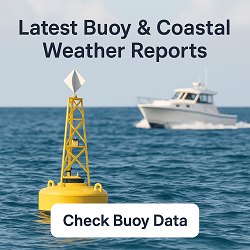Derry, NH Weather Forecast and Current Conditions (03038)
Current Conditions From Nearby Local Station

Feels Like 64°F
at
Current Conditions From Nearby Local Station

Feels Like 64°F
at
Point Forecast at a Glance







This Date in Weather History
1959 - A tornado struck the town of Ivy, VA. Eleven persons were killed, including ten from one family.
More on this and other weather history
Derry 7 Day Weather Forecast Details
Thursday Oct 2

Day: Mostly sunny, with a high near 63. Southeast wind around 5 mph.

Night: Mostly clear, with a low around 39. South wind 0 to 5 mph.
Friday Oct 3

Day: Sunny, with a high near 73. Southwest wind around 5 mph.

Night: Mostly clear, with a low around 49. West wind around 5 mph.
Saturday Oct 4

Day: Sunny, with a high near 79. Northwest wind 0 to 5 mph.

Night: Mostly clear, with a low around 52.
Sunday Oct 5

Day: Sunny, with a high near 80.

Night: Clear, with a low around 55.
Monday Oct 6

Day: Sunny, with a high near 81.

Night: Mostly clear, with a low around 55.
Tuesday Oct 7

Day: Mostly sunny, with a high near 80.

Night: A chance of rain showers after 8pm. Mostly cloudy, with a low around 60. Chance of precipitation is 40%.
Wednesday Oct 8

Day: Rain showers likely. Mostly cloudy, with a high near 72. Chance of precipitation is 70%.

Night: Rain showers likely. Mostly cloudy, with a low around 46.
Sun & Moon Monthly
Sunrise 6:44 AM
Sunset 6:26 PM
Last Light 6:54 PM
Moonset 1:09 AM

Contiguous United States Extremes
Wed's High Temperature
101 at Rio Grande Village, TX
Thu's Low Temperature
23 at Angel Fire, NM and Saranac Lake, NY
Weather Folklore
If the raven crows, expect rain.
Current subscribers - login to your ClearSky account
About Derry, New Hampshire
Derry is a town in Rockingham County, New Hampshire, United States. The population was 34,317 at the 2020 census. Although it is a town and not a city, Derry is the most populous community in Rockingham County and the 4th most populous in the state. The town's nickname, "Spacetown", derives from the fact that Derry is the birthplace of Alan Shepard, the first astronaut from the United States in space. Derry was also for a time the home of the poet Robert Frost and his family.
The Derry census-designated place, with a 2020 population of 22,879, occupies the central part of the town, extending from Derry's downtown in the west to the town of Hampstead in the east. The town also includes the village of East Derry.
Content from Wikipedia, licensed under CC BY-SA 3.0.
How We Provide Better Local Weather
Current conditions: We use the nearest available station to your location - including professional MESONET/MADIS and local weather stations - often miles closer than regional airports.
Forecasts: National Weather Service point forecasts predict for your specific area, not broad regional zones, making them far more relevant to your location.

